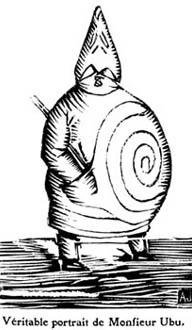Having witnessed many decadent performances by spoken word poets over this last week, some more prophetically fulfilling than others, I am slightly at a loss in choosing what one event is best fit for review. The “agate” in the rough, so to speak, that rises to the forefront of my memory is a fleeting yet impressionable encounter I had in the company of two friends at The Mars Bar, a small, seedy tavern up the street from the Bowery Poetry Club. It was on such a thirsty Thursday night in April that I had the pleasure of meeting a Mr. John Lesko, and got my first official taste of New York City’s infamously serendipitous culture.
At the start I was taken aback by this strange older gentleman who felt no compunction whatsoever in introducing himself on my left as I sat isolated on the right from my companions’ immersed dialogue. My reaction remained guarded for a short time before it became apparent that what was happening was anything but an unfortunate mistake. As it turned out, Lesko, who writes under the penname of Giron d’Agate, had much to offer in fermented wisdom as he proceeded to recite works impromptu from his self-published compilation Notes Of A Dying Man.
What strikes me as so refreshing about Lesko’s language and message similar to, say, America’s current poetical icon John Ashbery (though I would not compare the two on any other plane), is that it represents an austere realism of survival and spiritual transcendence in the hard-to-let-live city both poets call home. However often Lesko’s choice of words get bogged down in their playfully trite rhyme or repetition, there are a number of sparks to be found where poetic ability is concerned that justify the existence of the whole:
“Lunch is a fresh peach
bought from the brown wrinkled skin of an old woman's hand.
How can you know her;
Why is she here?
to sell a fresh peach
so that your journey may continue;"
---
“I stepped one-half step back
and the fire rose around me
consuming all dross
filling my soul with light
I was happy to know why the bush
was not consumed by the flame”
In both of these excerpts, among others, taken from pieces entitled On The Coast of Genius and The Night The World Caught Fire respectively, Lesko proves that despite his limitations there is a thriving potential within his creative power that if focused upon and freed from the rest would be much so for the better. He himself made the following analogy to poetic alchemy drawn from his experiences while serving in Vietnam. There is a common method among torture circles for getting the enemy to talk that involves making shallow cuts along the belly, placing a rat covered by a helmet on top and applying heat to the helmet which then simulates the proper “digging deep down” effect a poet needs to summon in his or her own writing process. :-)
If I have aroused your curiosity in any way, I would recommend at least skimming through the small online collection of Lesko or d’Agate’s work at:
http://www.ahead-of-the-curve.blogspot.com/
Physical examples of three finely tuned pieces may be viewed on the wall in the left corner at The Mars Bar, 25 E 1st St. Manhattan. Notes Of A Dying Man is not available in bookstores, but you may contact the author directly for a first edition copy ($50).
